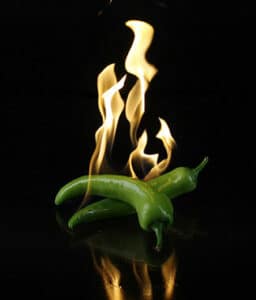Nutrition BEFORE and AFTER workout
Whether the goal of the workout is to improve well-being or to reduce % subcutaneous fat or increase muscle mass, it is always important for us to see the results of our efforts in the mirror after countless strength workouts, km, group jumps or swimming in the pool. Unfortunately, the desired training effect is not always visible. Because many forget that an active rhythm of life and a healthy lifestyle brings with them a special lifestyle and diet - because only 30% results are achieved as a result of training, but the rest of 70% is determined by your diet, your menu.
First of all, the purpose of training, body type and a person's individual daily routine in general - what time is training, when we get up, when we go to bed, what is our biological rhythm (owl or lark), etc. etc. And it is also important to understand what you want to achieve with training - to gain muscle mass, or - to reduce the percentage of subcutaneous fat?
It is safe to say that it is not good to eat a full meal just before going to the gym. For a hearty and carbohydrate lunch or breakfast, it is best to eat about 1.5 - 2 hours before your workout. However, if we have not eaten for more than 3-4 hours, there may be a lack of energy to be able to function properly in the gym. This should be especially remembered by beginners, because the body is not yet accustomed to a serious load, and the training may end with the fact that we will scare those around us with an elegant fall while fainting and will have to look for olfactory alcohol.
If the body has not received a complete meal for about three to four hours, then light carbohydrate snacks are allowed and even recommended one hour before training. Exercise-only energy should not be provided by products with a high glycemic index, as such products cause a rapid but short-lived influx of energy by rapidly raising blood sugar levels. Such products are wheat flour products (biscuits, muffins), sweets, lemonades, etc. It is better to provide energy for the lesson with snacks such as wholemeal bread, muesli bar, cottage cheese, lean cheese, banana, etc.
Nutrition before training (1.5-2h)
So before a workout you need to pick up protein and carbohydrates - They are needed to supply the muscles and brain with energy. During exercise, "fuel" is consumed very quickly, so it is necessary to make it directly from carbohydrates, because the body is unable to get the required amount of energy from fat in a short time (due to lack of oxygen). Compound carbohydrates should be chosen, which are absorbed more slowly and therefore provide the body with energy for a longer period of time (whole grains and legumes). Fast carbohydrates are not recommended as they are quickly absorbed by the body and provide a rapid but short-lived supply of energy and if not used as quickly there is a risk that the residue will turn into fat (white flour, sweet fruit, white rice, sweet drinks and juices).
You should not eat fatty foods before training, as it makes the stomach more difficult and slows down your metabolism. Fatty food lasts longer in the stomach and can cause spasms, belching and other unpleasant feelings during exercise.
The best pre-workout products are:
- Poultry (chicken, turkey) with wholemeal bread or rice;
- Lean meat (steak) with boiled potatoes;
- Omelet of egg whites and oatmeal.
The calorie intake before training should be the same as with other meals. It is better to eat large portions (a large plate of salad or soup) 1 - 2 hours before training so that they can be absorbed and the stomach gets loose.
"Thicker" food (half a plate of porridge or cottage cheese) can also be eaten 30 minutes before training. If your goal during training is to strengthen and grow muscle mass, then 30 minutes before training it is recommended to eat one large fruit with low glycemic index (apple, pear, strawberry or other berry) by drinking a protein shake on top of it. Calculated at 0.22 g protein per 1 kg. Let's say if your weight is 68kg, then this cocktail should contain 15g of protein.
30 minutes before training, it is recommended to drink a cup of strong, black coffee (can with a sugar substitute, but not with sour cream) or a very strong cup of green tea. It promotes the secretion of epinephrine and norepinephrine, which mobilizes faster transport of body fat for energy. This way you will burn more fat and less glucose and amino acids during your workout. Fatigue during training will also occur later and the brain will work more clearly - so you will be able to train much more intensively. The effect of coffee lasts about 2 hours.
Fluid intake during training
The most important thing during training - do not forget to drink water! Already at 2% dehydration training will be, so to speak - no and little effective. In this case, do not orient yourself to feelings - want to drink or do not want to. Intense training suppresses thirst receptors in your throat, so it may be that when you really want to drink, your body will be dehydrated. In addition, over the years, these thirst receptors lose their sensitivity. Therefore, adults should drink water because they need it, not because they want to drink it. If you notice at least 2 of these signs of dehydration - thirst, dry mouth, dry or even chapped lips, dizziness, tiredness, mild irritability, loss of appetite - stop drinking immediately and stop exercising until the symptoms go away.
The drinking regimen is as follows - just before the workout, drink a glass of water and during the exercise drink every 15 - 20 minutes. The amount you drink depends on the amount of your sweat. You need to provide during training body hydration or even superhydration. If the training lasts more than 1 hour, then it is desirable to drink special sports drinks. During the hour, along with sugars, the body should receive about 30 - 60g of carbohydrates. The body will not be able to absorb more than 60g, but training productivity may decline. Drink high - calorie drinks gradually, drinking a sip every 10 minutes. Spore drinks also contain salts (electrolytes) that the body loses through sweating and with urine. You can also drink juices during training, but preferably freshly squeezed, not bought in the store. It is safe to say that store-bought '100% natural juices without sugar' are, with rare exceptions, a natural juice concentrate diluted with water and containing sugar. Orange juice most often contains beet sugar, apple and corn syrups or inulin. Freshly squeezed orange juice, diluted 1: 1 with water, is best.
Nutrition after training
You need to eat immediately after training, if the goal is to build a beautiful, firm and firm body - in the first 20 - 30 minutes. If you don't eat anything within 2 hours after training, then the training loses its meaning - nothing was "trained", only a little fat was burned and that's it. No increase in strength, no muscle density, no slimming, no speed, no acceleration of metabolism - than…. In the first 20 minutes after a workout, the so-called post-workout (anabolic) window opens, where you need to take in carbohydrates and protein (but not fat). Everything that will be eaten during this time will go to energy and muscle regeneration (growth). It is best to drink a protein shake after a workout, these are the proteins that are absorbed the fastest.
After training (if the goal is not simple fat loss, but to build a beautiful, athletic body with strong and strong muscles), it is advisable to take carbohydrates with "fast" carbohydrates, which have a high glycemic index, preferably in liquid form. You need to get a high jump in insulin (because of its anabolic and anti-catabolic properties, which help you build muscle). Cranberry or grape juice would be best in this case, as they have a high glucose and fructose ratio. Take in about 0.7-1g of carbs per 1kg of ideal weight. A glass of grape juice contains 38g of carbohydrates (155Kcal) and a glass of cranberry juice contains 31g of carbohydrates (115Kcal). You can eat just as well any carbohydrate-containing product (fat-free) - bread, jam, sugar, potatoes, rice, pasta, fruit, vegetables).
If the goal is only to lose fat - after a serious workout, it is recommended to consume clean, fast-absorbing protein (Whey protein, also our own protein drink White or Milk Strength). The best and of course the most convenient would be a protein shake. In this way, muscle protein synthesis will increase 3-fold after a workout (compared to not taking up OB). It is convenient if you think about it when you go to training and put a shaker with protein in your bag, which you can drink at the sports club right after training, without wasting time and mixing it with water. The amount of OB you can take ~ 30g. And an hour later you can eat some of the composite carbohydrates and protein. However, it should be remembered that after training you should avoid fatty foods (fat prevents the absorption of proteins and carbohydrates in the body) and do not need to consume more energy (Kcal) than you consume during training. In this case, the best choices will be lean meat, fish, vegetables and dairy products.
In any case, remember - if your goal is to lose or maintain weight - it is important not to consume more energy (Kcal) during the day. And it's not so important when and when you eat. Even if the workout is in the evening, but your daily Kcal norm is not eaten - do not be afraid of "normal" dinner. If a physically inactive person has enough 1500 - 1800 calories a day, then as the frequency and intensity of physical activity increases, so does the number of calories needed - the body will need 2000 - 2500 calories. However, when starting sports and trying to balance the diet, it is necessary to take into account the characteristics of each individual - age, weight, height and lifestyle. When starting a sport, it is worth taking notes, both about the intensity of training and the food consumed, and to record the main thing - girth. Not the weight, but exactly the girth.
Protein should be "lean" on your menu. If chicken, then preferably chicken or turkey fillet, rather than hams or drumsticks (there is a lot of fat in the drumsticks). Pork, all minced meat (bought in the store) should be avoided, because they grind everything but not the meat. Preference - chicken, turkey fillet, veal, beef. Just like be careful with dairy products. Ideal if they have a fat percentage of up to 10 - 20%. As an exception, the menu may include fatty fish (but not fried!). They can and should be eaten - the more often the better.

Help to maintain this site, create interesting articles and delicious low-calorie recipes!
Share this article
Follow me on Facebook
I recommend reading these articles as well

Why do nutritionists' recommendations differ?
Or Why is the science of nutrition so confusing, and healthy eating is not as simple as we would like?

Paleo diet
A regular fashion diet or a path to a healthier life, disease prevention and weight loss?

Surprising findings about metabolism in the different stages of our lives
At what age does metabolism peak? When and how fast does it start to slow down? How does it affect our weight?

18 healthy products for weight loss
There are no weight loss products, but there are products that can help you lose weight more than others.

